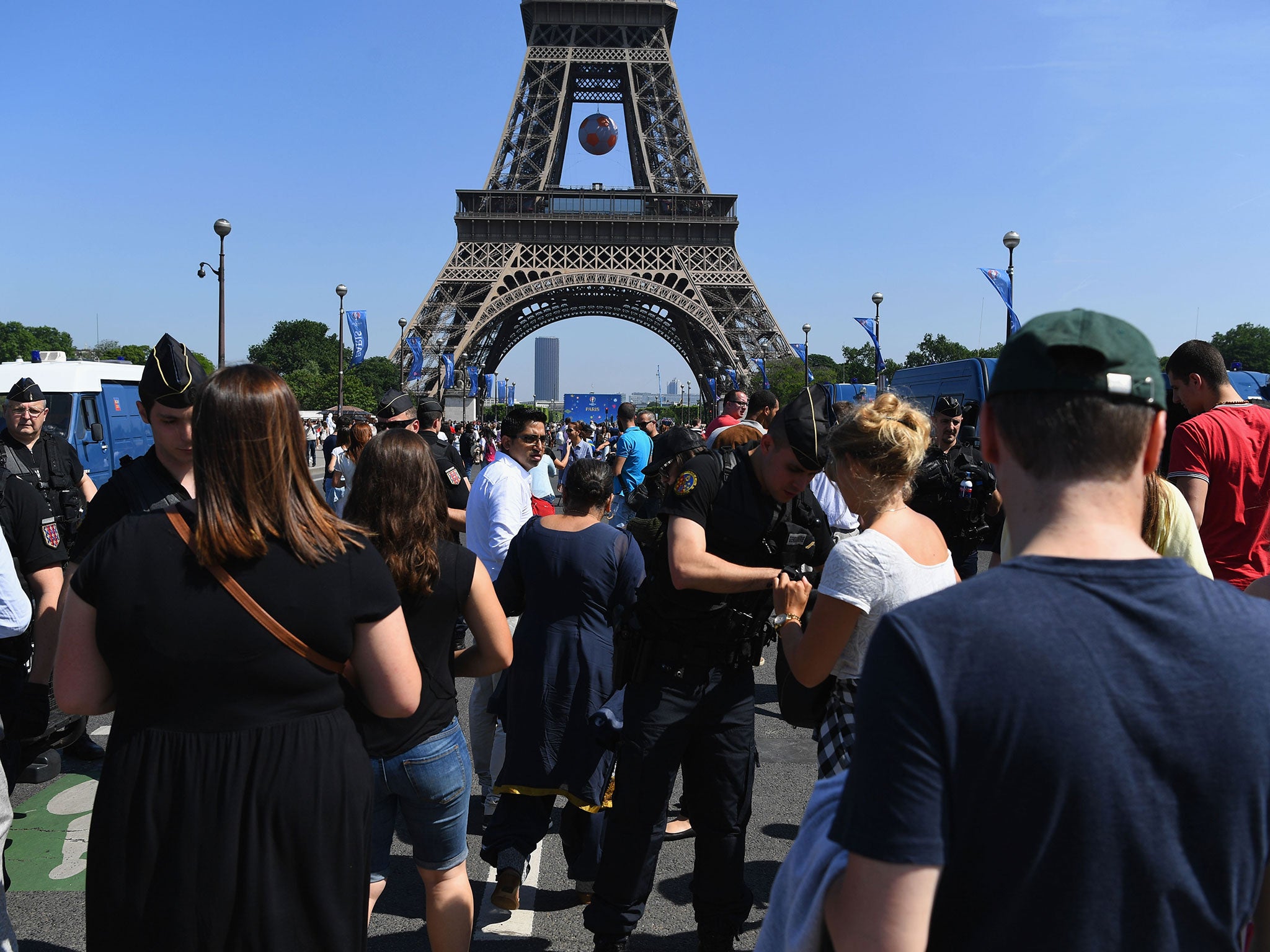Euro 2016 shines a very bright light on France's ongoing troubles
Some of us in Britain may be inclined to look on the recent French strikes as quaint and admirably familiar behaviour from our closest European neighbours. In fact, it is symptomatic of an almost permanently sclerotic economy, with high unemployment, low growth, and low productivity

Your support helps us to tell the story
From reproductive rights to climate change to Big Tech, The Independent is on the ground when the story is developing. Whether it's investigating the financials of Elon Musk's pro-Trump PAC or producing our latest documentary, 'The A Word', which shines a light on the American women fighting for reproductive rights, we know how important it is to parse out the facts from the messaging.
At such a critical moment in US history, we need reporters on the ground. Your donation allows us to keep sending journalists to speak to both sides of the story.
The Independent is trusted by Americans across the entire political spectrum. And unlike many other quality news outlets, we choose not to lock Americans out of our reporting and analysis with paywalls. We believe quality journalism should be available to everyone, paid for by those who can afford it.
Your support makes all the difference.Major sports tournaments are always interpreted as verdicts on the host nation, and in Euro 2016, there is the strong sense of an uneasy nation conscious of being on trial. France is in a state of emergency throughout this competition, with memories of recent terror attacks, including one at the Stade de France, fresh in the memory. Fresh security fears have heightened the tension across the country in recent weeks, as has torrential rain that caused extensive flooding and brought this most bureaucratic of advanced economies to something like a standstill. Its real problems – and indeed malaise – have deeper and more long-term causes, however.
It is an unappealing and perennial aspect of modern France that the country seems almost pathologically incapable of electing effective politicians. From the lethargic and plodding leadership of Jacques Chirac, to the disappointing premiership of Nicolas Sarkozy – who failed to achieve the Thatcher-like reforms he promised – each of the country’s recent leaders have lacked calibre. Perhaps few, however, have reached the sort of depths now routinely inhabited by Francois Hollande. Weak, indecisive, totally lacking in presentational skills, charisma and judgement, and without strong support from his own colleagues, Hollande’s leadership will be judged by history as an epic failure, despite his composure after the terror attacks in his capital.
Yesterday provided a fine example of his tiny stature. The President warned unions, who have been on strike of late over proposed reforms to labour laws that belong to another century, not to disrupt the tournament. They promptly ignored him. Recent weeks have seen the customarily French images of petrol stations running out of fuel, queues of lorries blocking motorways for miles on end and placards adorning the streets of town centres. Some of us in Britain may be inclined to look on this as quaint and admirably familiar behaviour from our closest European neighbours. In fact, it is symptomatic of an almost permanently sclerotic economy, with high unemployment, low growth, and low productivity. Whoever succeeds him in next year’s presidential election will need to push through reforms that are many decades overdue. Emmanuel Macron, the much-hyped 38 year-old Economy Minister, is often talked of as the man to do it, but even if he does have what it takes, there is a very long way to go before he is elected President (he’s currently not even a member of one of the main parties) and in any case recent history suggests we ought not to get our hopes up.
France’s social tensions are also in danger of boiling over. The run-up to Euro 2016 has brought back fond memories of the World Cup in 1998 (which a very multi-cultural French side won) – and with it, a stark picture of how the country has changed, not necessarily for the better. Didier Deschamps, who was captain of the winning side then, and is manager now, has been embroiled in a nasty row over whether his squad selection was racist. This ludicrous suggestion is contradicted by the facts available, but indicates how sensitive some of France’s minorities are becoming. With a generation of disaffected second-generation immigrants short of opportunities, and Marine Le Pen’s xenophobic nationalists rampant, even victory in these championships would be a mere sticking plaster on the gaping wounds of French solidarity.
But it is fear of terrorism which will cast the longest shadow over this tournament. The quote from a security source to our man in Paris yesterday – saying that the fan zones were like 10 Bataclans, a reference to last year’s attacks – was extraordinary. Unfortunately, sports stadiums are easy targets for terrorists, as are drunken fans. A huge amount of weaponry is known to be circulating around France at the moment, and the networks of extremists who have spread such horror are far from beaten. All of us who believe in civilisation and the heroic virtues of sport must hope for a peaceful few weeks. If terror strikes, an already despondent country will swiftly become a crucible of panic and fear, to which football will be simply a sideshow.
Join our commenting forum
Join thought-provoking conversations, follow other Independent readers and see their replies
Comments